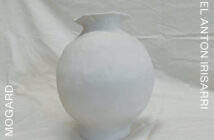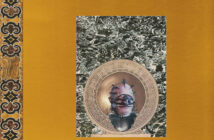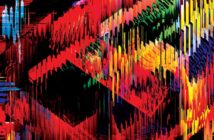
The Australian indie/rock underground has, over the last few years been under the grip/thrall of 60s garage rock. There has been some great music made as a result of this, as well as the inevitable load of derivative garbage. But, as with the actual 60s themselves, artists have branched out from these foundations. The most obvious, and globally recognised, example of this is, of course, Perth’s Tame Impala. With one guitar driven album and one keys driven album of drenched, reverbed pop, they have followed the path from garage into psychedelia with clear 60s reference points. Others, such as Tame Impala offshoot, Pond and Sydney’s Cull, have followed suit, adding their own specific shoegaze and indie tangents. Sunbeam Sound Machine, Melbourne solo producer, Nick Sowersby, follows in this path.
The immediately notable aspect of his début album, Wonderer, is the amount of processing in the production. Every single sound drips with some sort of phasing, flanging, tremolo, reverb, compression or delay. Traditional effects but applied with such relentless devotion that they become the overriding æsthetic of the entire album. On ‘Real Life’, for example, the drums have so many warbling effects applied – tremolo, chorus – that the sound of the actual flickering becomes the dominant rhythm creator rather than the actual drums themselves. It’s often difficult to tell whether specific sounds have been created from guitars, synths, or even samples. The (sort of) title track, ‘Wonder’, for example, is built on a simple refrain that could be sourced from an acoustic guitar, a synthesised harpsicord or perhaps just a dusty sample from an easy listening record, wrung through the effects units to become a flickering, incandescent chime in the midst of the sweeping lo-fi buzz going on around it. Meanwhile, ‘Zeds’ largely relies on processed field recordings of children playing or flocks of birds for its timbral texture.
It would be disingenious to merely pass Wonderer off as 60s pastiche, however. There is a fairly wide spread historical and contemporary approach within. In the more rhythmically driven moments such as ‘Wandering, I’, there are glimpses of peak era shoegaze, most obviously Chapterhouse, or My Bloody Valentine’s mellower moments in the wash of the aforementioned ‘Wonder’, as well as 21st century champions of the sound like Dead Mellotron, particularly in instrumental interludes like ‘A Brief Attempt At Explaining The Sky’. Sometimes, Sowersby just strums at his guitar (then completely washes the sound out with effects, of course), coming on like early Ariel Pink or Ducktails – though, for mine, done here with much greater melodic and sonic invention, leaving those contemporaries far behind. The 60s reference becomes explicit in ‘Good Vrations’, a brief interlude whose bastardised title reflects its own structure, with deeply pitch shifted a capela voices melodically hinting back to the Beach Boys’ psychedelic high point. The following ‘Fever Dream’ uses the same chords structure to create a washy soup over which the voices can play at their normal pitch.
Lyrically, Sowersby, is engaging, avoiding trite clichés of either drippy mysticism or simple love songs. “What if this takes the rest of my life? What if its just a moment in time? What if this takes a part of me? What if it’s just a waste of my time?” he asks on ‘Wandering, I’, a marker of the self-reflective nature of his thoughts. It’s also brilliant to hear an Australian accent in the vocals, another factor which pulls the album away from being copyist and beholden to specific stylistic markers.
Wonderer is not a particularly ground breaking album (but, then, is that even possible within a post-modern paradigm?). It is, however, a wonderfully crafted album. For those with a predisposition towards psych/shoegaze pop bliss (as I most definitely am), there is enough inventiveness in melody, mood, production surprises and sheer bliss to hook you in and keep you coming back again and again.
Adrian Elmer



